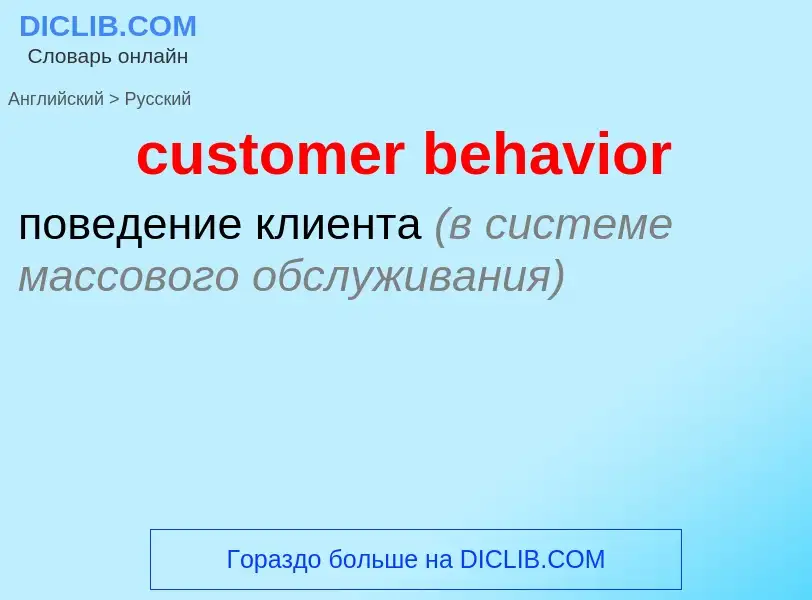Перевод и анализ слов искусственным интеллектом ChatGPT
На этой странице Вы можете получить подробный анализ слова или словосочетания, произведенный с помощью лучшей на сегодняшний день технологии искусственного интеллекта:
- как употребляется слово
- частота употребления
- используется оно чаще в устной или письменной речи
- варианты перевода слова
- примеры употребления (несколько фраз с переводом)
- этимология
customer behavior - перевод на русский
Определение
Википедия
 Galeries Royales St Hurbert, Brussels.jpg?width=120)
Consumer behavior is the study of individuals, groups, or organizations and all the activities associated with the purchase, use and disposal of goods and services. Consumer behaviour consists of how the consumer's emotions, attitudes, and preferences affect buying behaviour. Consumer behaviour emerged in the 1940–1950s as a distinct sub-discipline of marketing, but has become an interdisciplinary social science that blends elements from psychology, sociology, social anthropology, anthropology, ethnography, ethnology, marketing, and economics (especially behavioural economics).
The study of consumer behaviour formally investigates individual qualities such as demographics, personality lifestyles, and behavioural variables (such as usage rates, usage occasion, loyalty, brand advocacy, and willingness to provide referrals), in an attempt to understand people's wants and consumption patterns. Consumer behaviour also investigates on the influences on the consumer, from social groups such as family, friends, sports, and reference groups, to society in general (brand-influencers, opinion leaders).
Research has shown that consumer behaviour is difficult to predict, even for experts in the field; however, new research methods, such as ethnography, consumer neuroscience, and machine learning are shedding new light on how consumers make decisions. In addition, customer relationship management (CRM) databases have become an asset for the analysis of customer behaviour. The extensive data produced by these databases enables detailed examination of behavioural factors that contribute to customer re-purchase intentions, consumer retention, loyalty, and other behavioural intentions such as the willingness to provide positive referrals, become brand advocates, or engage in customer citizenship activities. Databases also assist in market segmentation, especially behavioural segmentation such as developing loyalty segments, which can be used to develop tightly targeted customized marketing strategies on a one-to-one basis. (Also see relationship marketing).

![The [[Galeries Royales Saint-Hubert]] shopping arcade in [[Brussels]], [[Belgium]]. Consumer behaviour, in its broadest sense, is concerned with how consumers select, decide and use goods and services. The [[Galeries Royales Saint-Hubert]] shopping arcade in [[Brussels]], [[Belgium]]. Consumer behaviour, in its broadest sense, is concerned with how consumers select, decide and use goods and services.](https://commons.wikimedia.org/wiki/Special:FilePath/(Belgium) Galeries Royales St Hurbert, Brussels.jpg?width=200)



















.jpg?width=200)

.jpg?width=200)


